Turkey Travel Tips: 22 Things to Know Before Going to Turkey
If you’re heading to Turkey soon, you’re lucky! But it’s smart to look for some Turkey travel tips and advice as the country can be exotic depending on where you come from.
Rest assured though, you will have a memorable trip in Turkey, whether you visit just Istanbul or take time to go to other parts of the country. It is a diverse, beautiful country with amazing landmarks, flavorful food, good beach resorts, and lots of activities to suit every preference. Traveling there is fun and affordable, making Turkey a prime tourist destination.
Here are 22 things to know before going to Turkey that will certainly be helpful to you, especially if you are going for the first time.
TABLE OF CONTENTS
- 1. Safety in Turkey
- 2. You may need a visa to enter the country
- 3. Turkey is a large country, so take note of flying time or driving distances
- 4. Weather in Turkey & best time to visit
- 5. Cost of living in Turkey
- 6. Getting Around Turkey
- 7. Where to go in Turkey
- 8. Spend some time exploring Istanbul
- 9. Try the local food
- 10. Be prepared for traffic and lots of people
- 11. Taxi scams to be avoided
- 12. Always carry cash
- 13. You must haggle to buy anything
- 14. Turkey is a shopping destination
- 15. Turkey is also a medical destination
- 16. Dress modestly at cultural sites and in bazaars
- 17. Wi-Fi may not work as well
- 18. Communication outside Istanbul
- 19. Bring a travel adapter
- 20. Some websites are banned
- 21. What to pack
- 22. Relax and things will be done!
- FAQ About Visiting Turkey
1. Safety in Turkey
Let me address this right away. It is crazy how this beautiful country gets portrayed in the media at times. There is no safety issue in traveling to Turkey, whether as a couple or a family.
We traveled to Turkey with our 2-year-old daughter, and everyone was kind and so playful with our daughter. Of course, if you are a solo female traveler, you would take the same precautions that you would in any other country in Asia or Africa.
The recent earthquake in 2023 in the Aegean region in Turkey was devastating and relief efforts are still on, but this is far away from tourist places, so don’t let that keep you away from planning a trip to Turkey. And if you are the worried type, having travel insurance is always a wise choice.
2. You may need a visa to enter the country
Like many countries around the world, you may not be able to freely enter Turkey depending on your country of origin.
Surprisingly, this is a key aspect that often slips the minds of those living in developed countries (myself included). Yet, even citizens of countries like the United States are required to apply for a visa to visit Turkey. Quite astonishing, isn’t it?
For Americans, it is quite simple: all you have to do is fill in a form online and pay $50. You’ll get an e-Visa in just a few minutes, allowing you to stay for up to 90 days.
Check here to find out if you need a visa or not to enter Turkey.
3. Turkey is a large country, so take note of flying time or driving distances
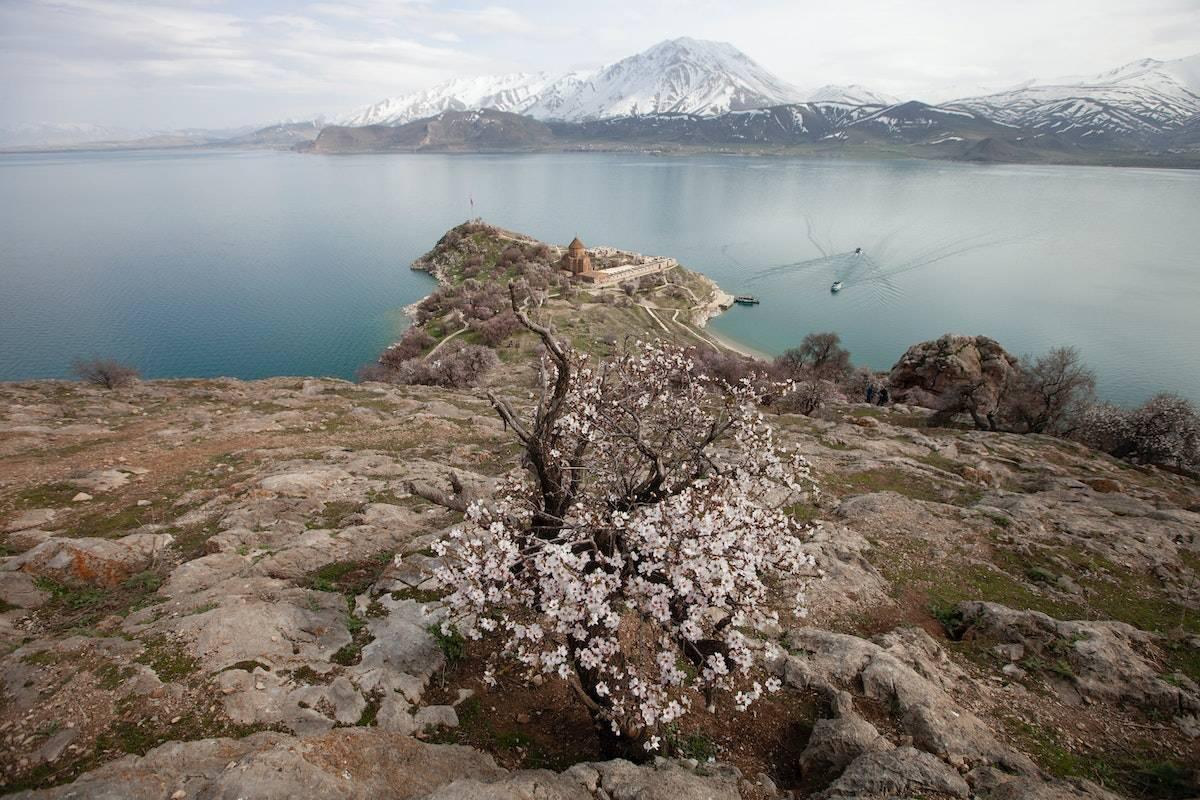
Lake Van in Middle Easter Turkey
While planning your Turkey itinerary, make sure you factor in moving time from one city to another. We covered just Istanbul, Cappadocia, and Ephesus over a 10-day Turkey itinerary, and that trip felt packed (traveling with a 2-year-old).
Our flight time from Ataturk Airport in Istanbul to Kayseri (airport at Cappadocia) was 2.5 hours. Combine that with travel time to and from both airports, it took the better part of a day. Ditto for the flight and travel time from Cappadocia to Izmir (to visit Ephesus).
If you are taking a road trip instead of internal flights, the time to travel between cities would just multiply. So do account for travel times and then finalize places to visit in Turkey.
4. Weather in Turkey & best time to visit
Turkey is a large country with differing weather patterns depending on where you go, but it is mainly continental.
In general, summers can be extremely hot so be prepared for strong sun if you go in this time. But it’s the best period to enjoy the beaches and the pleasures of swimming. However, exploring certain sites, such as Ephesus for example, can be fairly exhausting at this time of year, as the heat is overwhelming.
Winter can be cold, quite rainy, and snowy in some parts. In Central Anatolia, temperatures can drop as low as -30°C / -22°F!
The best time to visit Turkey would be in spring or autumn. The shoulder seasons are indeed ideal for walking, especially in Cappadocia. There are also fewer tourists, which means more opportunities to talk to the locals.
5. Cost of living in Turkey
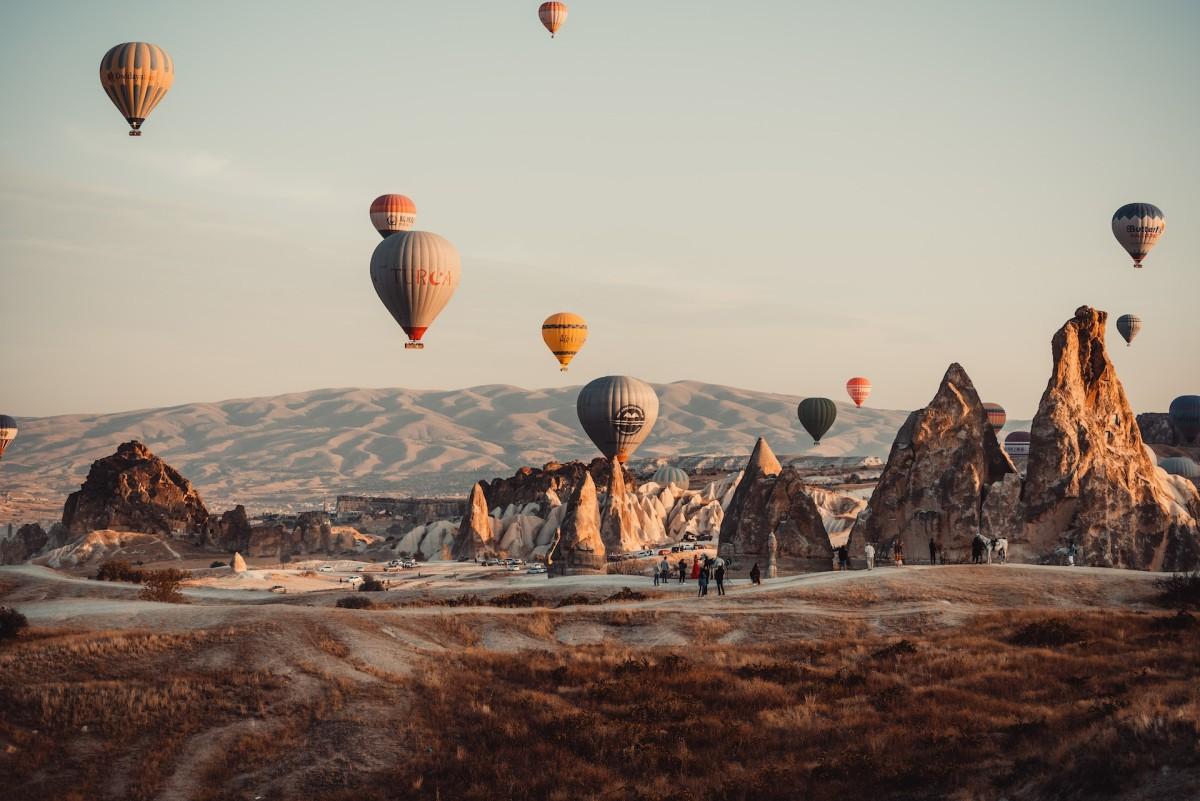
The cost of living in Turkey is lower than in the US or Western Europe. However, you will be surprised at how expensive activities and tours can be, such as the famous hot-air balloon rides in Cappadocia (yes, prepare some cash).
There is also a big difference between Istanbul and the rest of the country. So if you want to take souvenirs home with you, it is wise to avoid buying them in Istanbul, where prices are skyrocketing. It is more budget-savvy to make your purchases as you go along.
If you’re visiting Istanbul only, avoid buying in the Grand Bazaar. There is plenty of choice, but it is pricer than in the surrounding shops, even if you bargain.
Below is a rough daily budget per person for enjoying your Turkey trip to the fullest:
- For about $30 USD/day (810 TRY), you can travel in backpacker mode: crash in budget hotels, eat on the go or at local joints and hop on public transport.
- For around $50 USD/day (1350 TRY), you’re in for more treats: a comfy hotel stay, dining out at restaurants, hopping on public transport, plus a few cab rides and sightseeing.
- For about $70 USD/day (1890 TRY), you’re in for a deluxe experience: a cozy stay in an upscale hotel, rent a car and eat at good restaurants. You can also treat yourself to some fine handicrafts.
Compare accommodation prices in Turkey on Booking.com
6. Getting Around Turkey
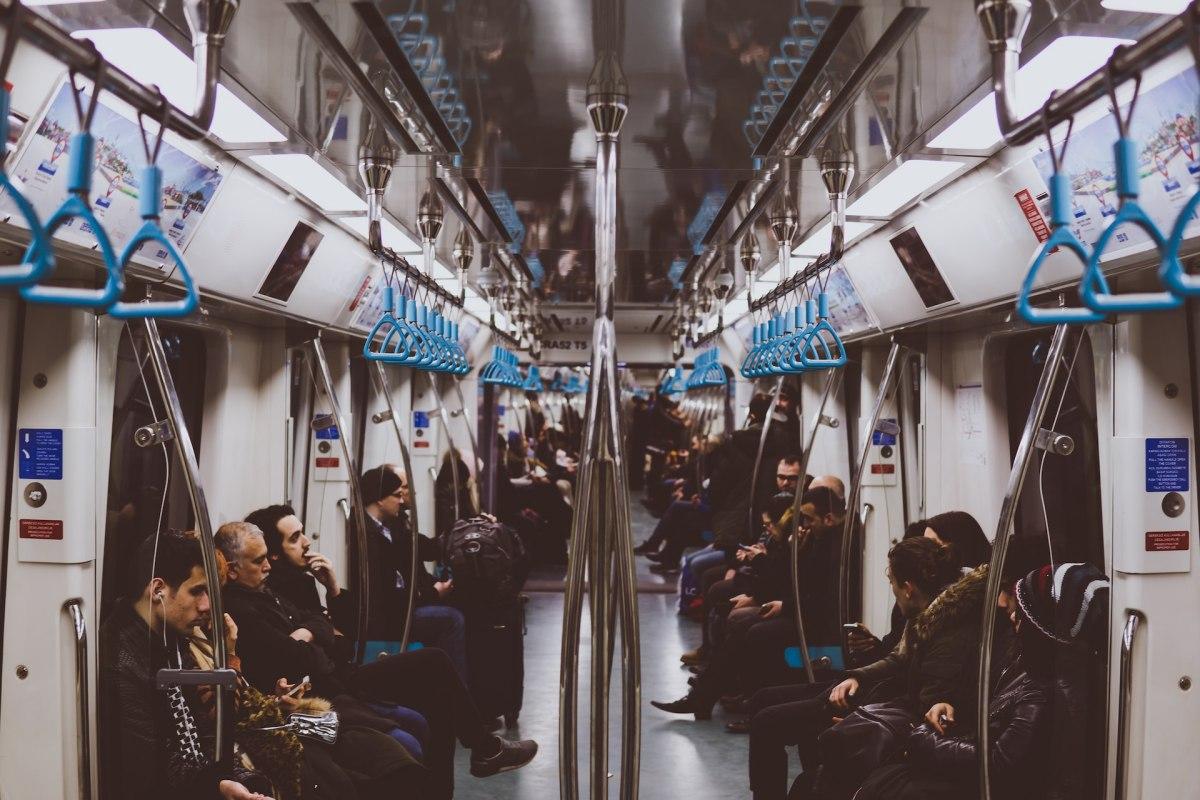
Subway in Istabul
Exploring Turkey is best achieved through a combination of car rental and air travel. The country’s vast landscapes lend themselves to memorable road trips, but it would be impossible to rely solely on the car.
If you are in Istanbul and want to visit Cappadocia for example, the best is to take a domestic flight between Istanbul and Kayseri, rent a car there, and then fly back to Antalya to visit the coast with another car.
Turkey’s public transport is well-equipped with buses and dolmuş. Dolmuş are collective minibusses serving both urban centers and their outskirts. While budget-friendly, dolmuş operates on a fill-and-go basis, needing patience and time. As for bus rides, they are too long and often uncomfortable, so they are not appropriate for short visits.
In urban areas, public transport is efficient and affordable, and taxis are readily available—just ensure the meter is engaged (more details below).
7. Where to go in Turkey
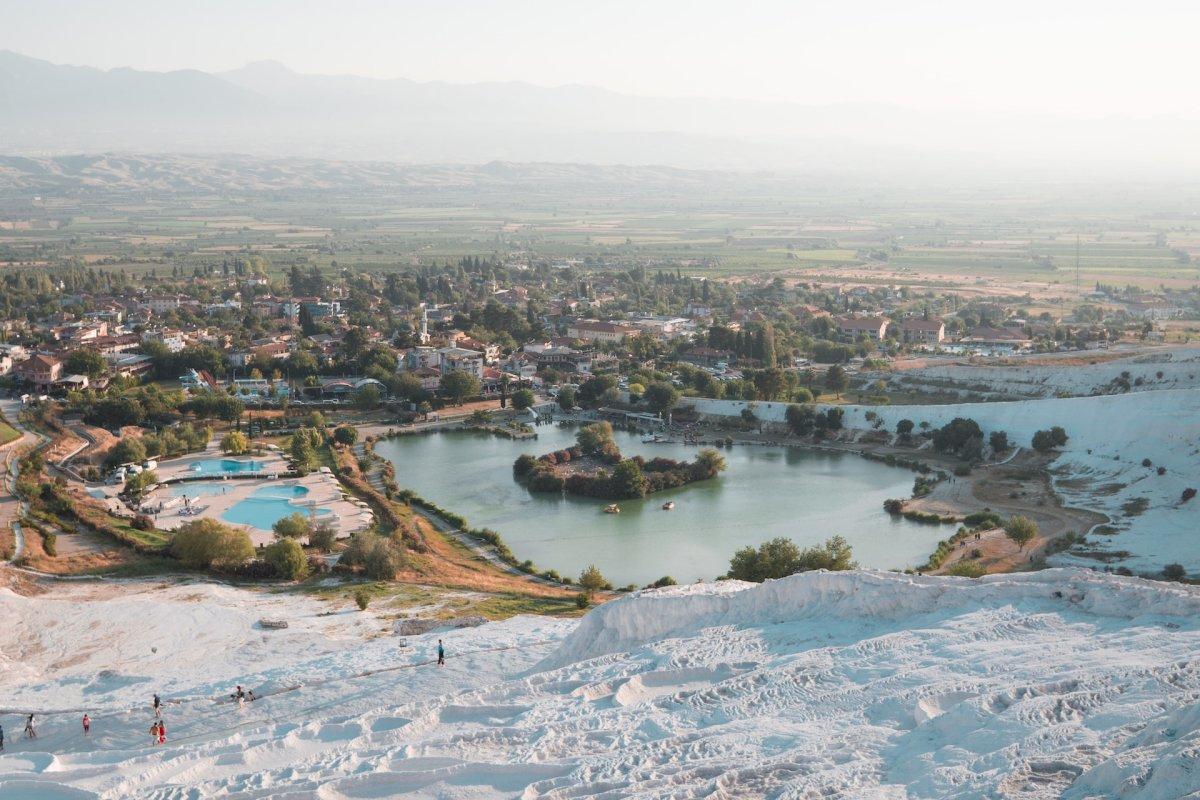
Pamukkale
Turkey has many places of interest and very different regions. To fully experience its charm, consider dedicating 2-3 days – or more – to each location, as the country’s vastness makes day trips challenging.
Here are the best places to stay in Turkey to get the most out of the country and explore the must-sees:
- Istanbul: Often mistaken for the capital, this sprawling metropolis is an ideal starting point for your Turkish adventure.
- Cappadocia: A truly picturesque and Instagrammable destination, Cappadocia’s rock churches around Göreme present an enchanting open-air museum.
- Izmir: With a history spanning over 3,000 years, this ancient city boasts a rich cultural heritage and significant historical sites.
- Pamukkale: Its renowned sparkling-white terraces create an otherworldly setting that’s sure to captivate.
- Antalya: Wander through its winding streets and embrace the unique ambiance of one of Turkey’s most stunning cities.
- Bodrum: A blend of modernity and trendiness, Bodrum ranks among Turkey’s top seaside resorts.
- Selçuk: This charming town serves as a base for exploring the ancient marvels of Ephesus during the daytime.
8. Spend some time exploring Istanbul
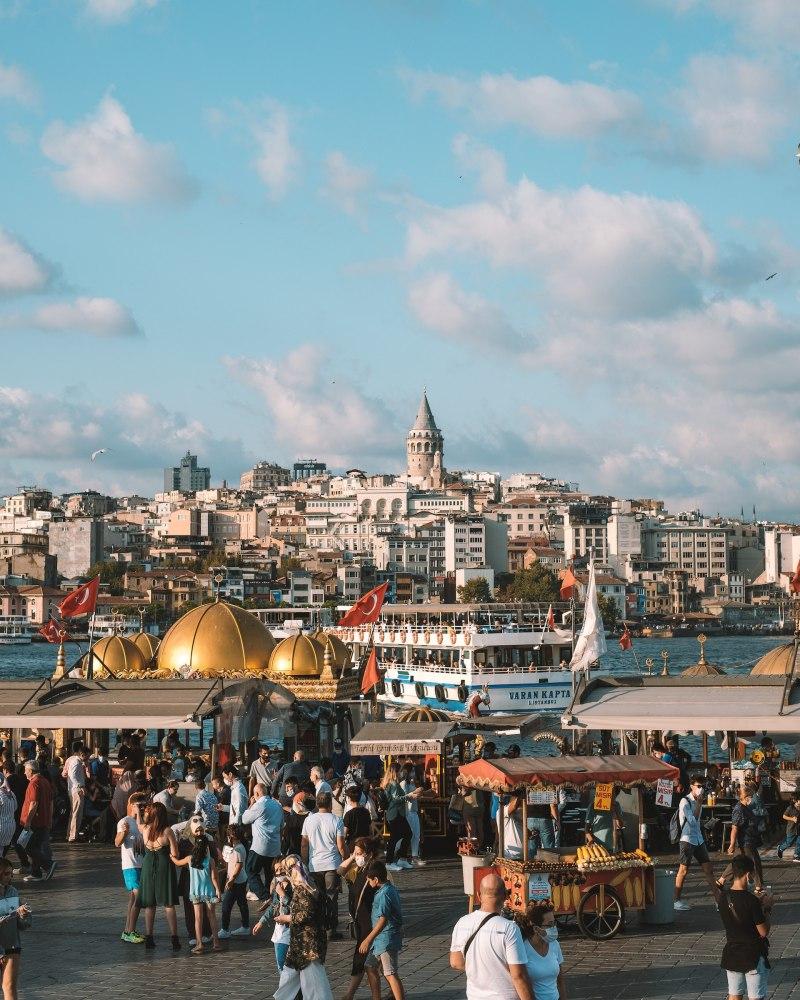
I have been to Istanbul twice; it is a fascinating city. Istanbul straddles 2 continents and the Bosphorus flows through the city. The ancient sites at Sultanahmet are just stunning. The grandiose Blue Mosque, Hagia Sophia, and the Topkapi Palace are incomparable. The hustle and bustle at Grand Bazaar or Spices Market has to be seen to be believed.
And then there is the modern part of Istanbul that is so cosmopolitan and yet, distinctly Turkish, like Istiklal Caddesi and Taksim Square.
So don’t just spend a day in this vast cultural metropolis. I would recommend 3 to 4 days in Istanbul to explore it fully. If staying for more than 3 nights in Istanbul, my suggestion would be to stay 2 nights in Sultanahmet to be close to the ancient sites. And the remaining nights in any of the modern neighborhoods (Beyoglu, Besiktas would be good options) to explore the rest of Istanbul.
Also, the traffic is ferocious in Istanbul so do account for the time taken to travel from one part of the city to another.
Read more: Discover Istanbul most famous landmarks
9. Try the local food
Turkish cuisine is influenced by many different cuisines and cultures like Central Asian, Middle Eastern, and so on. There are so many savory local foods to try, like the dolma, pide, menemen.
If you like kebabs, there is a large variety to be found – doner kebabs, adana kebabs, chelo kebab to name a few. And this would be heaven for those who have a sweet tooth – the sheer variety of baklava and other sweets is unbelievable. A hot cup of tea or coffee would complement any meal perfectly.
One of the best experiences was our food walk tour in Istanbul. Not only did we try out local cuisine at small eateries, but we also ventured into many different neighborhoods on both sides of the Bosphorus that we may not have gone to by ourselves.
You may want to enjoy the famous Turkish breakfast or kahvalti. This would be a table full of small plates. You could even try it in the afternoon if this much food is not your preference in the morning.
10. Be prepared for traffic and lots of people
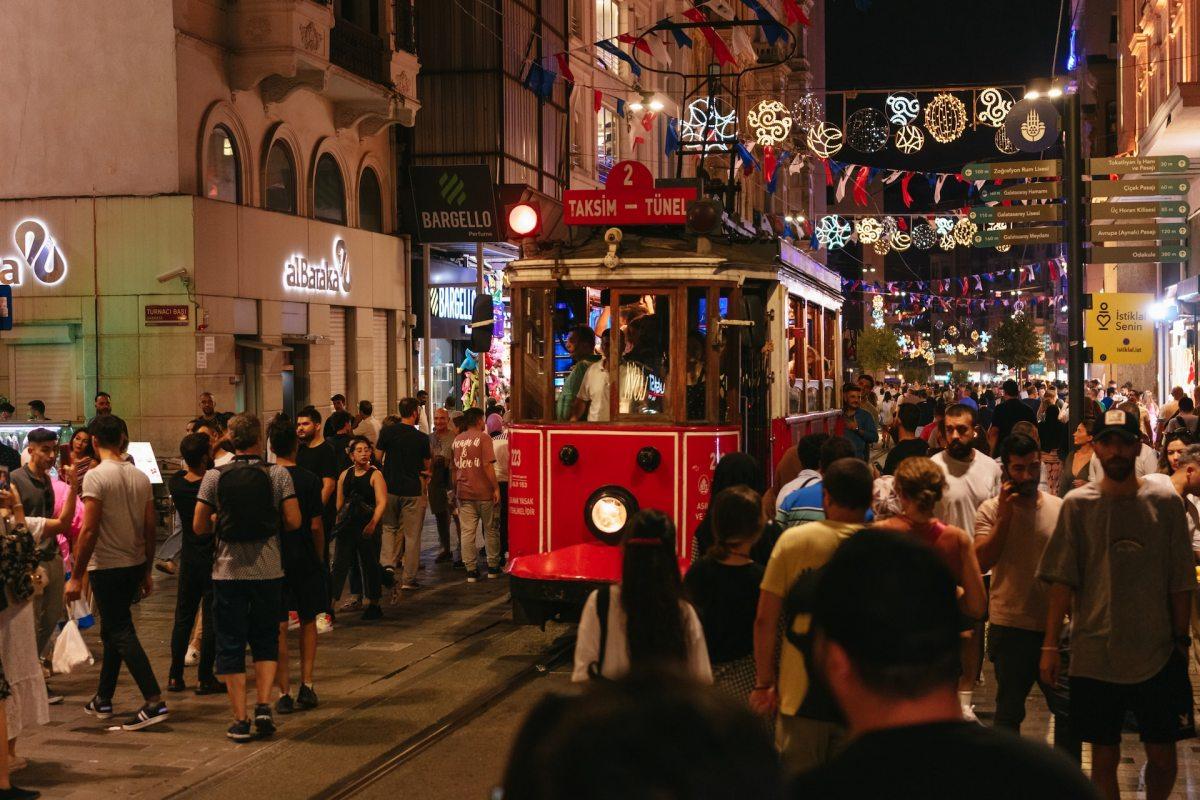
I already mentioned the crazy traffic in Istanbul earlier. I come from India and am used to a lot of people. And yet, I was overwhelmed by the sheer number at the Grand Bazaar.
To go from one neighborhood to another in Istanbul, account for peak traffic timings. It can be ferocious. And it’s not just bazaars that are crowded in this sprawling city. A walk on Galata Bridge in the evening can be quite an adventure with people jostling for space!
11. Taxi scams to be avoided
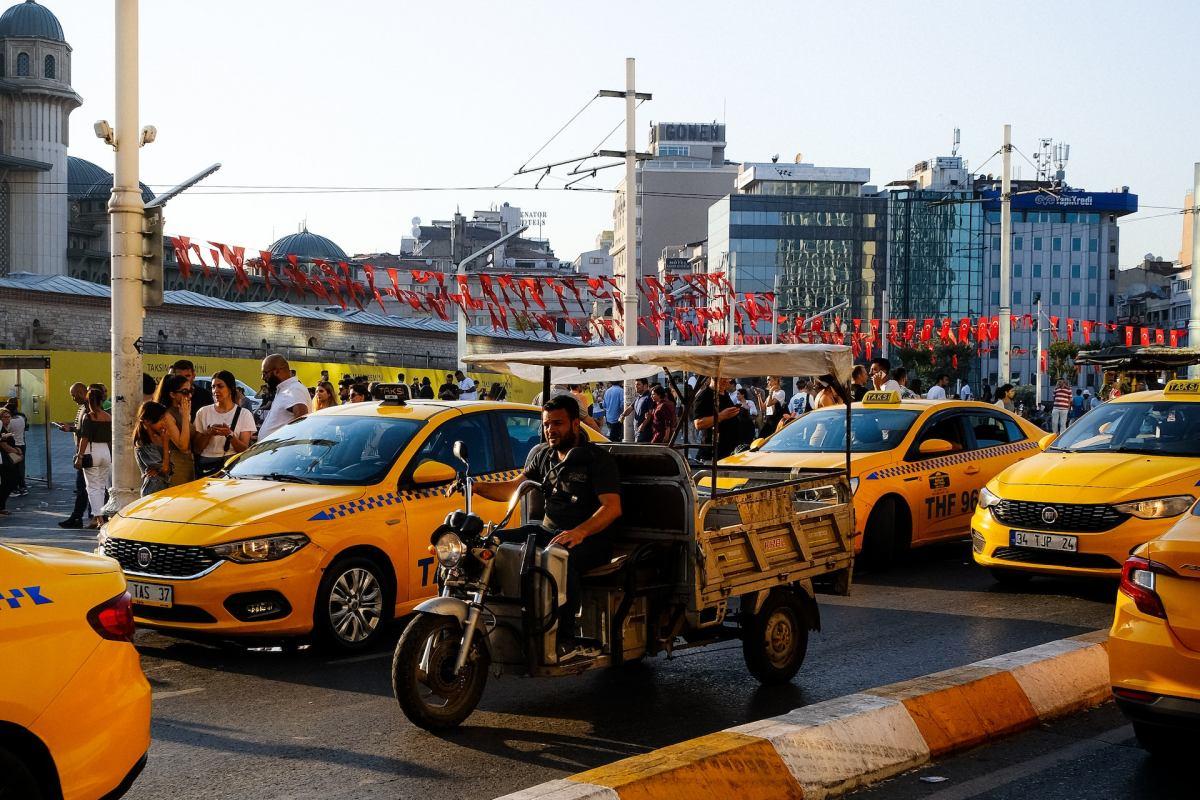
Before getting into a taxi, check if there is a meter and ask for the approximate amount and the route. Most taxi drivers would take the direct route and not the longer ‘scenic one’ if they see you being cautious and questioning.
During the drive, turn on your own GPS to make sure the driver takes you to the right place and always keep an eye on the meter so the driver doesn’t turn it off.
It is also good to ask the locals in your hotel beforehand about the money it would cost to go from one place to another.
There are Ubers available in Istanbul. Even when using the Uber app, some drivers may take a shot and ask you for cash: never give cash as you will be also charged online on the app, ending up paying twice.
12. Always carry cash
Credit cards are widely accepted across Turkey, but it is advisable to keep a small amount of cash handy as well. This is particularly important when venturing beyond major urban areas, where card acceptance might not be as reliable, and ATMs could be scarce.
Should you need to exchange money, it is best to do so upon your arrival in Turkey to secure more favorable exchange rates
13. You must haggle to buy anything
While shopping for a Turkish souvenir, in Grand Bazaar or outside, do not shy away from haggling. This is the time to put these skills to the test!
When the shopkeeper tells you the price for something, quote less than half. He would accuse you of robbing him blind, and make wild gestures at times. Take your time to bargain and the final price mostly would be between the 2 prices quoted – the initial price by the shopkeeper and the price you started with.
14. Turkey is a shopping destination
But don’t let this culture of haggling keep you away from buying souvenirs from Turkey. There are food products like tea, coffee, baklava, and Turkish Delight that you can take back home.
There are also lovely ceramics, Iznik tiles, brassware, and copperware, tea sets to be bought. And if you don’t mind something heavy and expensive to be transported back home, Turkish rugs are quite famous.
15. Turkey is also a medical destination
Medical tourism in Turkey is booming, with people flocking from all over the world. They are drawn not only by the top-notch quality of care and state-of-the-art facilities but also by the incredibly favorable prices for various procedures. In fact, some surgeries are up to 80% cheaper in Turkey!
In addition to affordable rates, what attracts so many patients to Turkey is the simplification of administrative procedures. The country goes the extra mile when it comes to healthcare, often offering all-inclusive packages. Airfare, airport pick-up, luxury accommodation, tailored travel itinerary… Essentially, all you need to do is pay, and the rest is taken care of!
The majority of patients come to Turkey for procedures such as hair transplants, dental surgeries, cosmetic interventions, bariatric surgeries, laser eye treatments, and dermatological therapies. So don’t be surprised if, at the airport or on the plane, you come across several bandaged skulls or noses!
16. Dress modestly at cultural sites and in bazaars
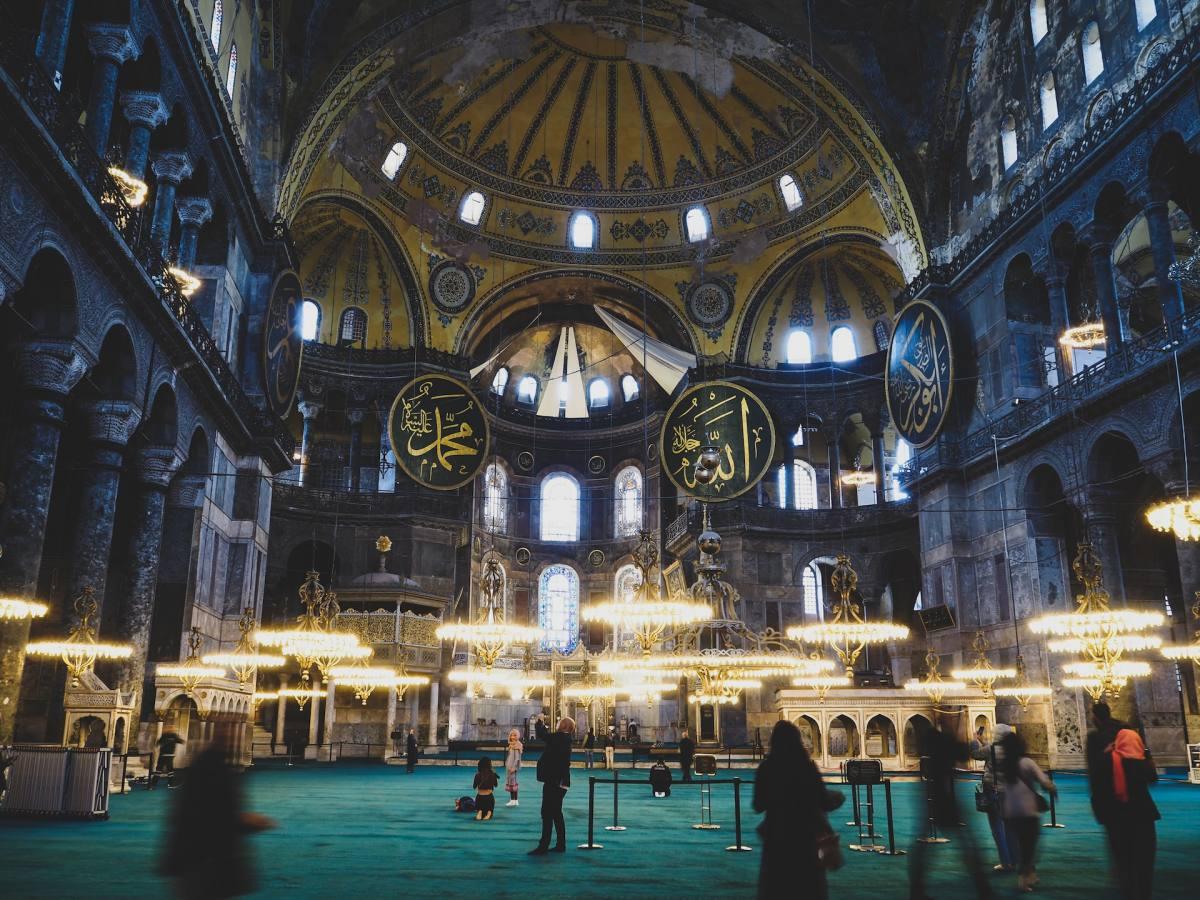
Inside Hagia Sophia in Istanbul
Turkey is diverse and so is Istanbul, so be aware of where to dress conservatively. Dress modestly for all mosques and cultural sites within the Sultanahmet area. Both men and women need to cover their legs and heads before entering a mosque.
Also, know the proper etiquette at a mosque and that non-Muslims cannot go to the inner sanctum during prayer times. Some spots may require you to take your shoes off and then wash your hands.
There are modern neighborhoods in Istanbul where Westernized attire is normal. And you will see all sorts of swimwear at any of the beach resorts in Turkey. However, modern holiday resorts do not truly represent Turkey. For an authentic feel, do visit the local village outside your tourist resort. And dress modestly for this visit.
17. Wi-Fi may not work as well
Be prepared for patchy Wi-Fi connectivity, especially outside Istanbul. Even for passcodes at places including the airport, you need a Turkish or a European number. If you really need Wi-Fi to work, you should buy a local Turkish sim card (for those having an international phone plan) or rent a Pocket Wi-Fi.
The prepaid sim card is the least expensive option. It includes a predefined amount of mobile data, which you can use as you wish without worrying about going over the limit. But be careful where you buy it, as the price may vary depending on the store. Prefer buying it in a Turkcell shop.
Pocket Wi-Fi is the best solution if you need to share the connection between several devices or with several people. It offers unlimited mobile data on a top local network. You can rent one online or visit a Turkcell store. The cost is about $8 – $9 per day for rentals of 5 days or more (shorter rentals aren’t as cost-effective).
Get a 5-day Pocket Wi-Fi that you can share with up to 10 people for just 42€ here.
18. Communication outside Istanbul
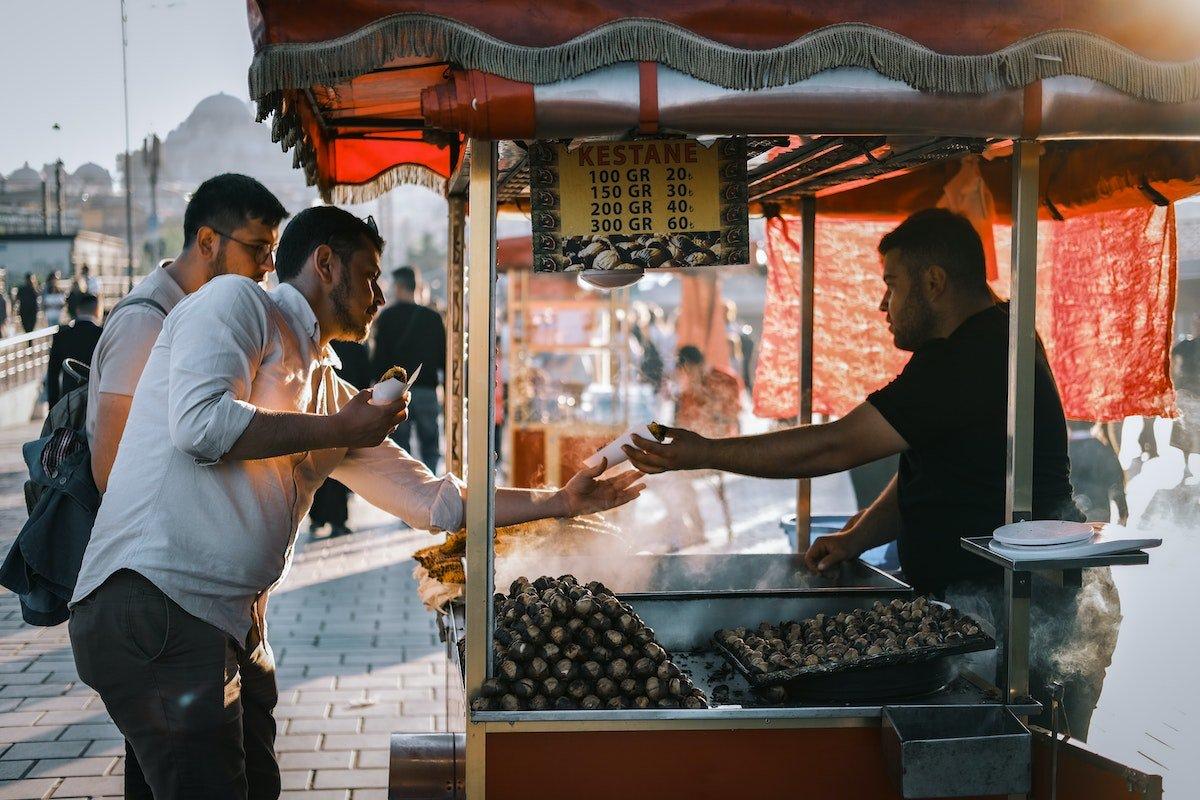
English is not widely spoken in Turkey. And if you step outside Istanbul, it is best to know some words and phrases to help you around. This is particularly important if you have allergies or food preferences, you should know the specific Turkish words to make yourself understood.
💡Here’s a shortlist of the basic expressions to know when traveling to Turkey:
- Hello = Merhaba
- No = Hayir
- Yes = Evet
- Ok = Tamman
- Good morning = Günaydın
- How are you? = Nasılsın?
- Please = Lutfen
- Thank you = Teşekkürler
- Goodbye = Güle güle or Hoşçakal
- Good evening = Iyi akşamlar
- Good night = Iyi geceler
19. Bring a travel adapter
The electricity voltage is 220 V in Turkey, and you have to carry a standard European travel adapter (F type).
Make sure you pack it in your luggage as it may be difficult to find one that works properly when in Turkey. If you don’t have one, I recommend buying this one or this one if you travel a lot.
20. Some websites are banned
There’s a list of about 50,000 websites that can’t be accessed from within Turkish borders due to various reasons. The list includes platforms like Booking.com (can be used for Turkey but when outside the country), Paypal, and Wikipedia, as well as illicit and prohibited sites.
Surprisingly, even though these sites are restricted in Turkey, they still pop up in search engine results. Consequently, when attempting to find information on Google and inadvertently clicking on a banned site (often Wikipedia ranking first), your device grapples for several minutes, only to be met with your browser stating “This site is not accessible.” This can be quite frustrating.
Fortunately, there is a solution: using a VPN. But again, beware: many VPNs are blocked in Turkey, so you’ll need a VPN with robust security features.
21. What to pack
Regarding clothing, your choices will naturally hinge on the season of your visit to Turkey. To help you in making appropriate clothing selections, download this free winter/summer packing list here.
As for the rest, here’s a list of the essentials you’ll need for a trip to Turkey, whatever the season:
- Electrical adapter
- Good walking shoes (the most important item, there is nothing worse than wearing uncomfy shoes when walking all day long)
- Packing cubes (hey, you need to make space for the souvenirs!)
- Travel towel
- Sweater and/or a hoodie
- B01A0NT3D6 (always, even to protect yourself from the winter sun!)
- Scarf to enter mosques, ideally in linen or cotton gauze for more comfort
Check this page to make sure you don’t forget anything in your luggage.
22. Relax and things will be done!
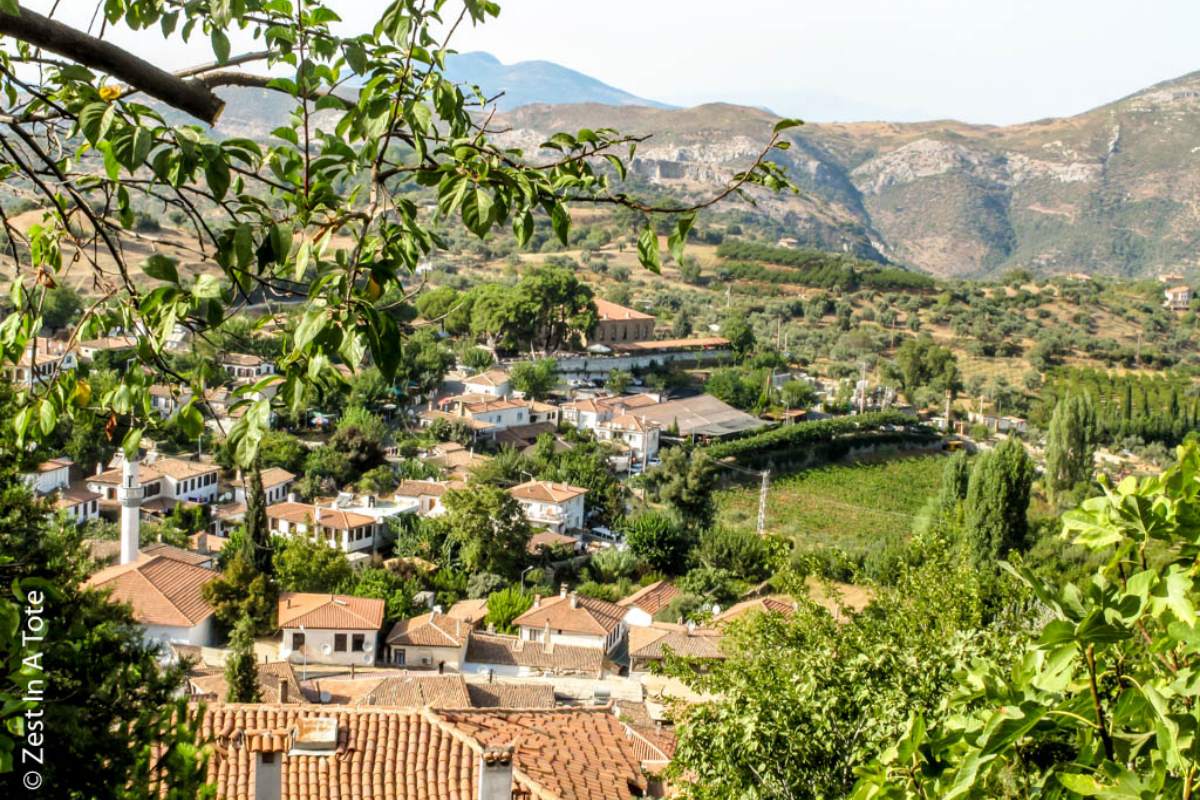
Sirince Valley in Western Turkey
Do remember that things don’t work in Swiss time here. People do have a laissez-faire attitude towards most things in life, so work will be done when it gets done.
So don’t find ‘Turkey time’ aggravating and you will have a nice holiday!
—
Hope you’ve found these travel Turkey tips helpful! But I’m done yet, so keep reading to get more info 👇
FAQ About Visiting Turkey
What is the currency in Turkey?
The official currency in Turkey is the Turkish lira (TRY), and it is divided into kuruş.
Currently, $1 USD = 27,03 TRY. Check the exchange rates here (always up to date).
Is Turkey dangerous to visit?
No, Turkey is not dangerous to visit. Apart from the risk of terrorist attacks (as in many European countries), Turkey is a safe country, with the exception of certain regions, and you will have no trouble getting around.
Cities such as Istanbul and Ankara are considered safe, although they face common urban problems such as pickpocketing, which can be found in most of the world’s major cities.
However, caution is advised in certain southern regions that border Syria and Iraq, such as Mardin and Diyarbakir provinces. These areas have experienced an ongoing armed conflict between the Turkish military and the PKK (Kurdistan Workers’ Party), which is classified as a terrorist organization by some countries.
How is driving in Turkey?
Turkey is well-equipped with modern infrastructure, generally clear signage, and readily available fuel and services throughout the country. But before you hit the road, here are a few driving in Turkey tips & info:
- If you’re not a Turkish citizen, you have to be 21 to be allowed to rent and drive a car
- Most tourists can drive in Turkey with a valid foreign driver’s license for up to 6 months. However, if your driver’s license is printed in a non-Roman alphabet like Arabic or Chinese for instance, an international driver’s license is required.
- Turkey has a zero blood alcohol limit, which means you can’t drink and drive in Turkey.
- In the old towns, the lanes are extremely narrow, steep, and made of cobblestones, most of which are missing, so avoid them as much as possible.
- Speed limits are not always indicated, so here they are: freeways are limited to 120 km/h (75 mph), dual carriageways (out of town) to 90 km/h (55 mph); and 50 km/h (30 mph) in town.
- Be quick and efficient at traffic lights. The locals won’t give you a moment’s rest, honking as soon as the light turns green.
Is tap water safe to drink in Turkey?
No, it is not recommended to drink tap water in Turkey. Drink capped bottled water only wherever you are in Turkey (even restaurants and hotels) and avoid ice cubes.
Where to stay in Turkey?
Here is a selection of the very best accommodation to stay in Turkey’s most popular places, Istanbul & Cappadocia:
Accommodations in Istanbul:
- ✅ Overall Best Hotel – Galata Greenland Hotel: from far the best one, spotlessly clean, beautifully decorated with good service, and perfect location.
- ✨ Best Luxury Hotel – RUZ Hotels: this 5-star hotel has an outstanding customer grade of 9.4/10 and a spectacular terrace with a view. Nothing more to say!
- 💰 Best Budget Hotel – Hotel Sultanahmet: you can’t be closer to Hagia Sophia! The view is so incredible, the place is clean with all amenities.
Accommodations in Cappadocia:
- ✅ Overall Best Hotel – Elite Cave Suites: this is the best value for money you can find in the area. Great location, amazing caves to sleep in, a great terrace with a view, in short, a full Cappadocia experience.
- ✨ Best Luxury Hotel – Divan Cave House: this hotel is exactly what you’d expect from Cappadocia, with exceptional facilities and services.
- 💰 Best Budget Hotel – Cappadocia Stone Palace: everything is perfect, for a very affordable given the area. It is clean, the staff is helpful and the rooftop has a crazy view.
Find more accommodation elsewhere in Turkey on Booking.com.
🔍 Read more:
- Best Landmarks in Turkey
- Best Landmarks in Istanbul
- Is Istanbul worth visiting?
- 1-day itinerary in Istanbul
- 2-day itinerary in Istanbul
- 4-day itinerary in Istanbul
- Karakoy Istanbul Neighborhood Guide
- Balat Istanbul Neighborhood Guide
—
Hope you liked these useful tips for traveling to Turkey and that they will help you spend a wonderful time there. 🙂
About the Author
Shweta has always been passionate about travel and immersing in new experiences. Having been to over 40 countries, she blogs at Zest In A Tote to bring family-friendly itineraries and tips, destinations, and luxury stays to her readers. Her belief in family travel needn’t be boring and one can do a mix of local culture & food, adventure activities, and relaxation, all with family. Connect with Shweta on Facebook or Instagram.
Travel Tools
Use any of our recommended links below to book your trip. You pay the same, and we earn a small fee; a great way to support us!
Pin this to Pinterest!
Enjoyed this guide? Then help a fellow traveler and pin it! They'll most definitely love you for it, 100% guarantee.
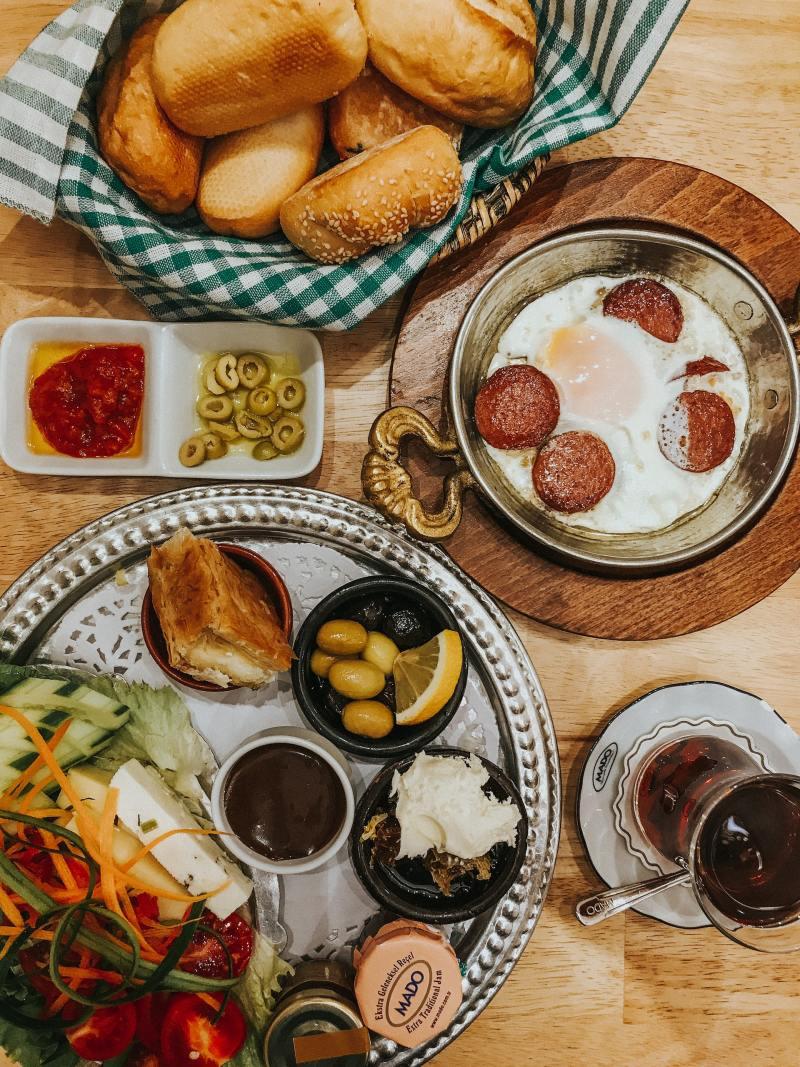

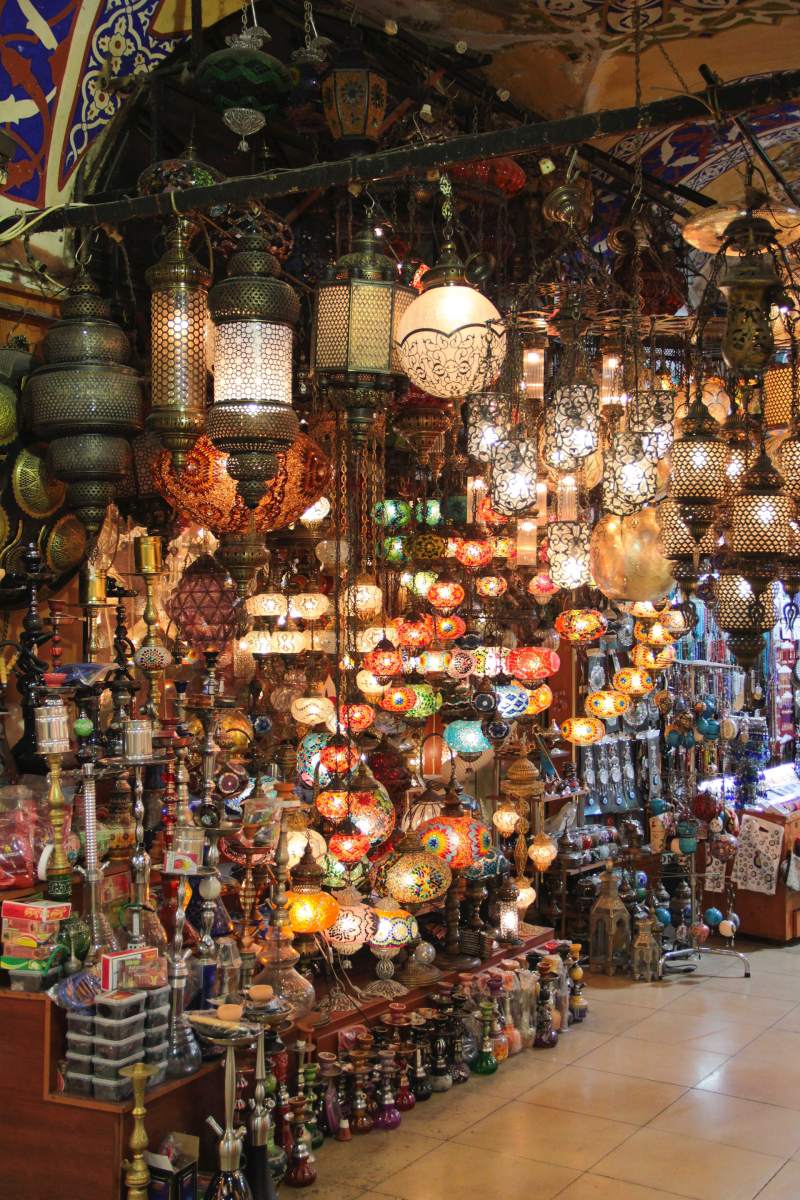
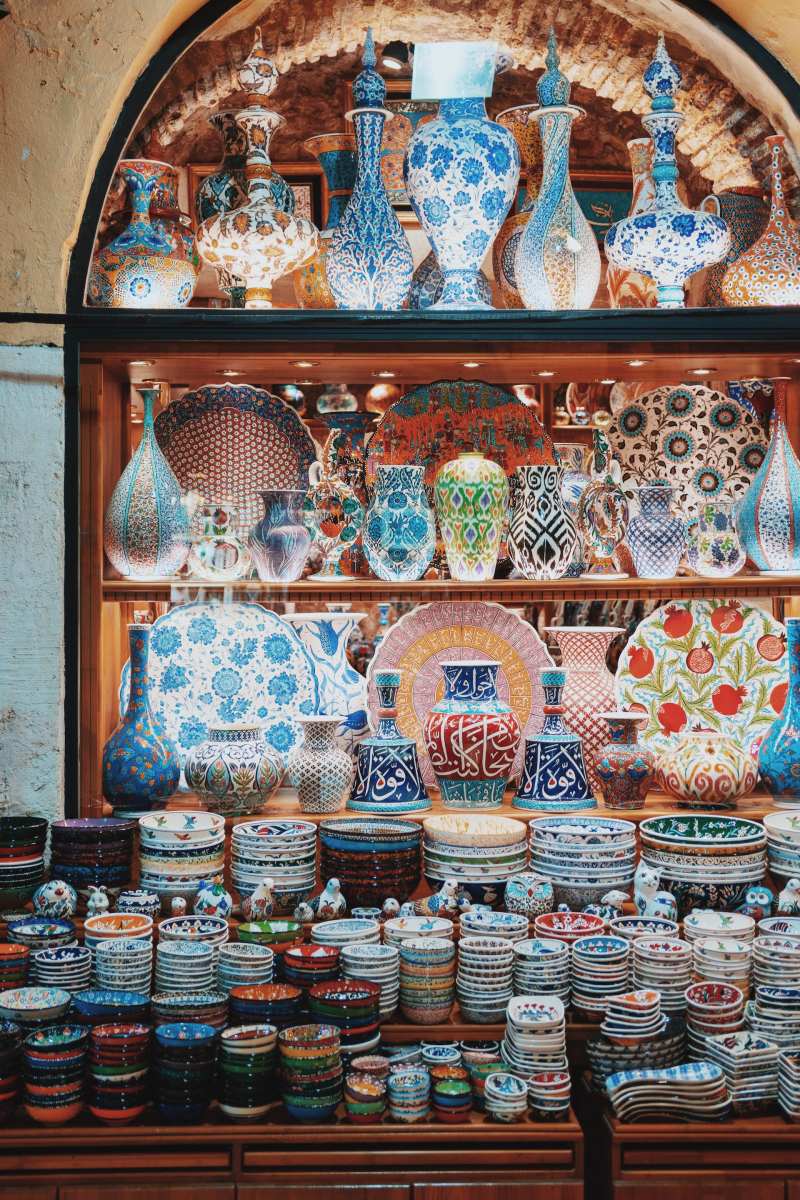
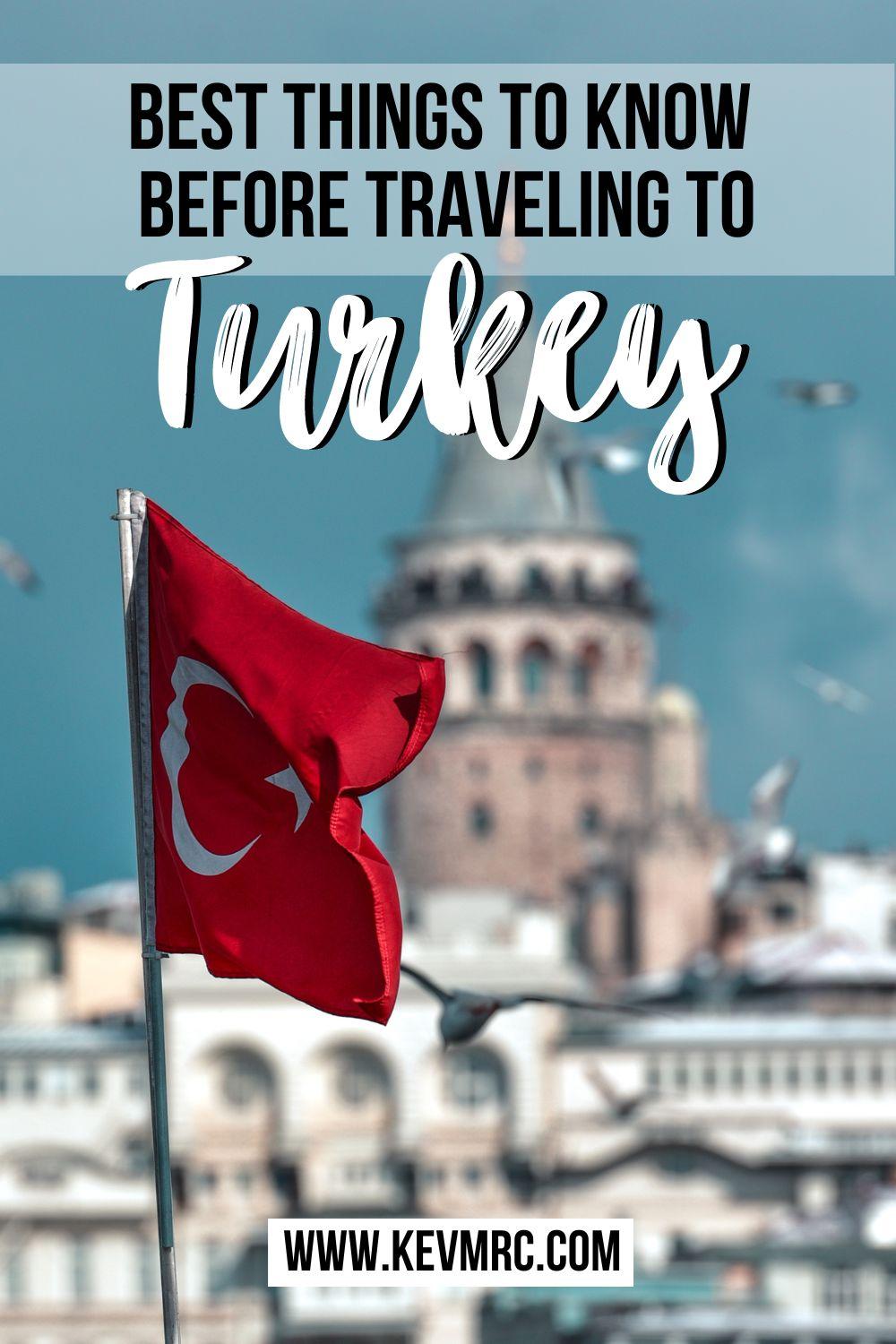

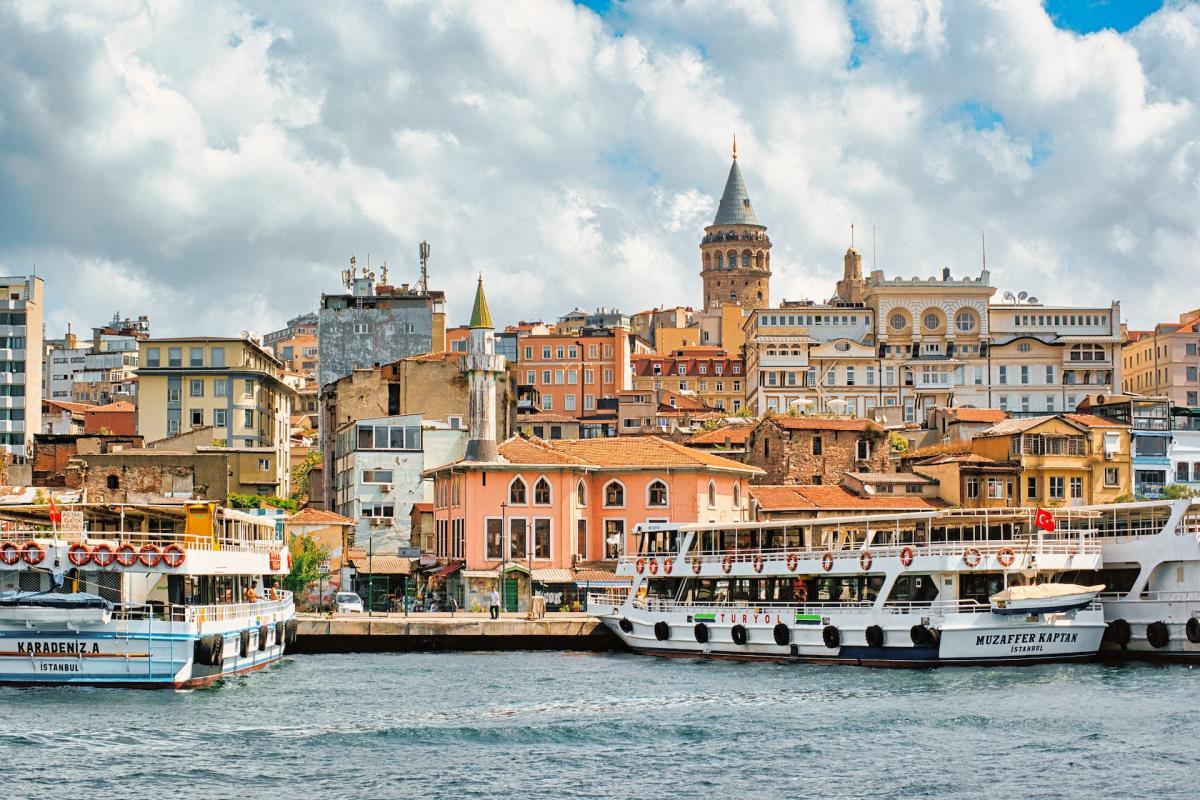
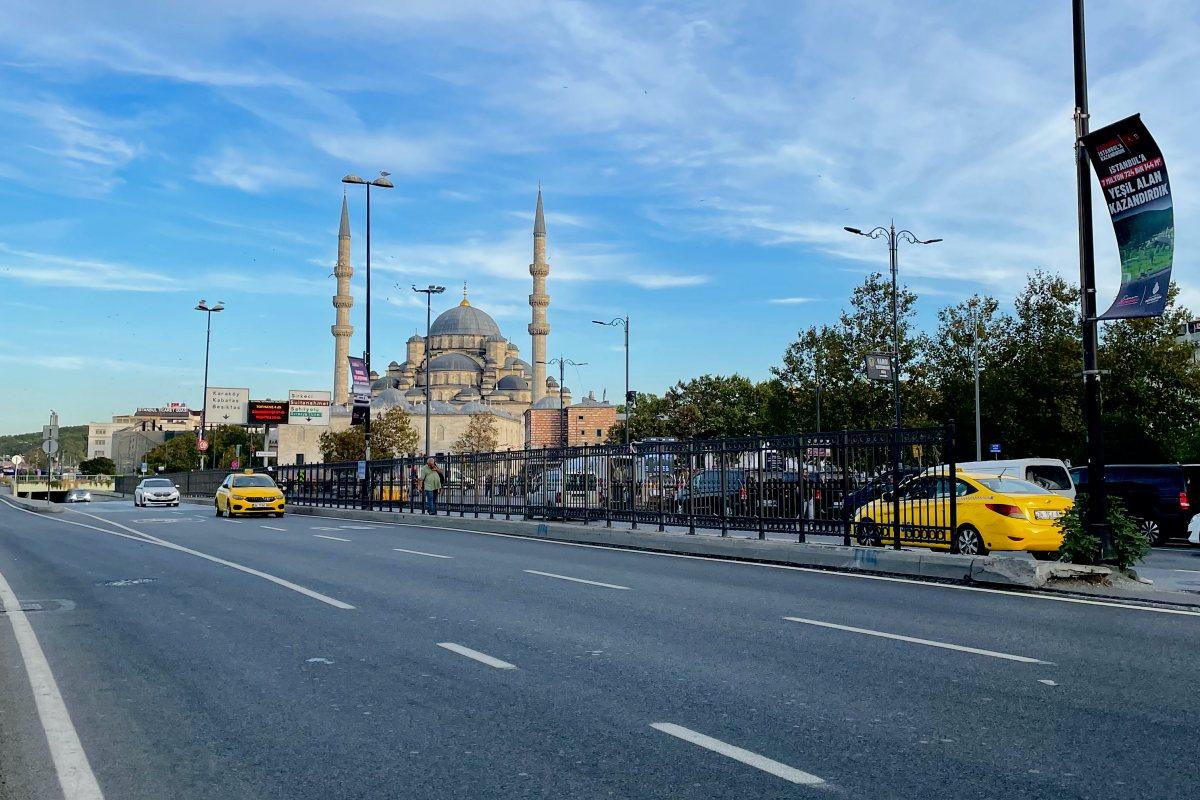
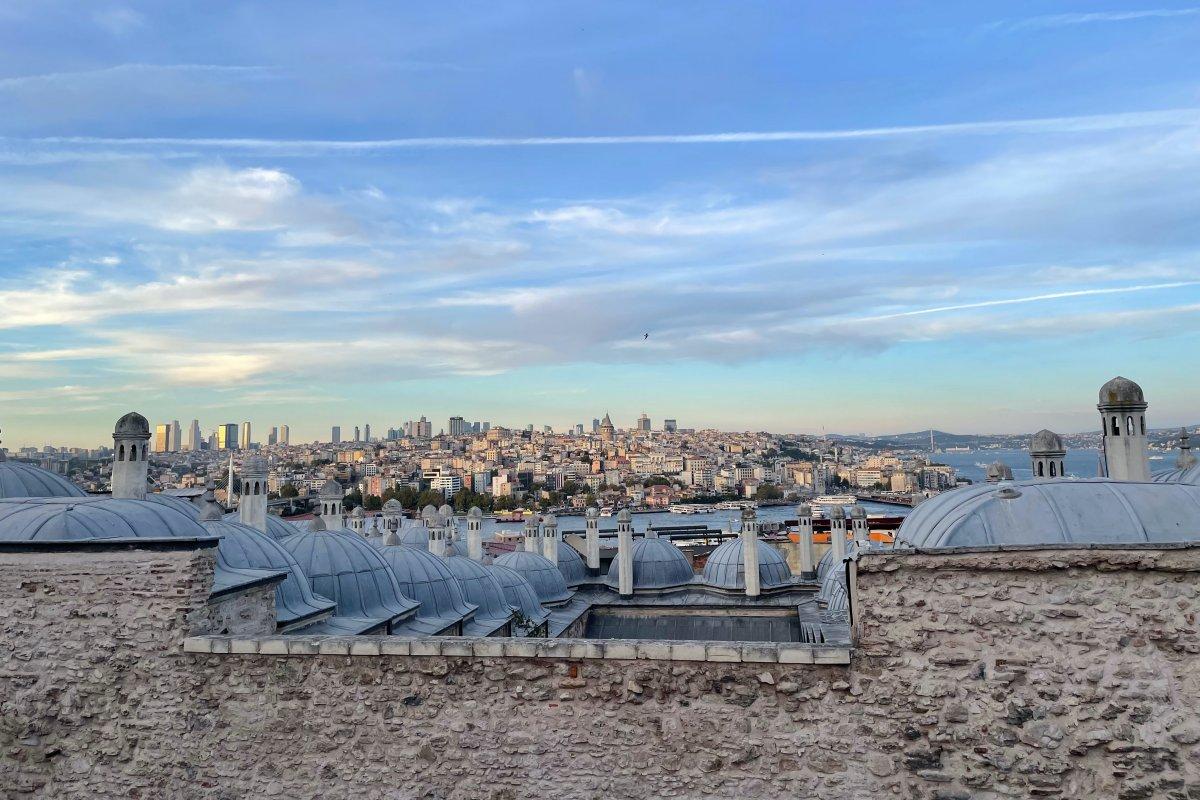
You have done a great job of highlighting some of the most important and helpful things to know before going to Turkey, such as visa, safety, transportation, culture, food and attractions. I like how you explained each tip in a clear and concise way, with some useful links and resources. Your photos are stunning and inspiring, too.